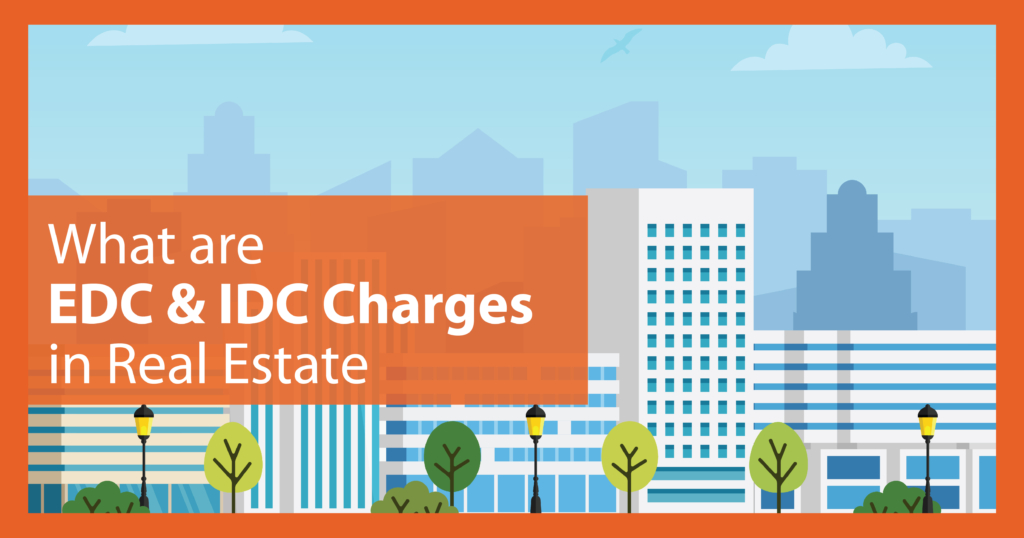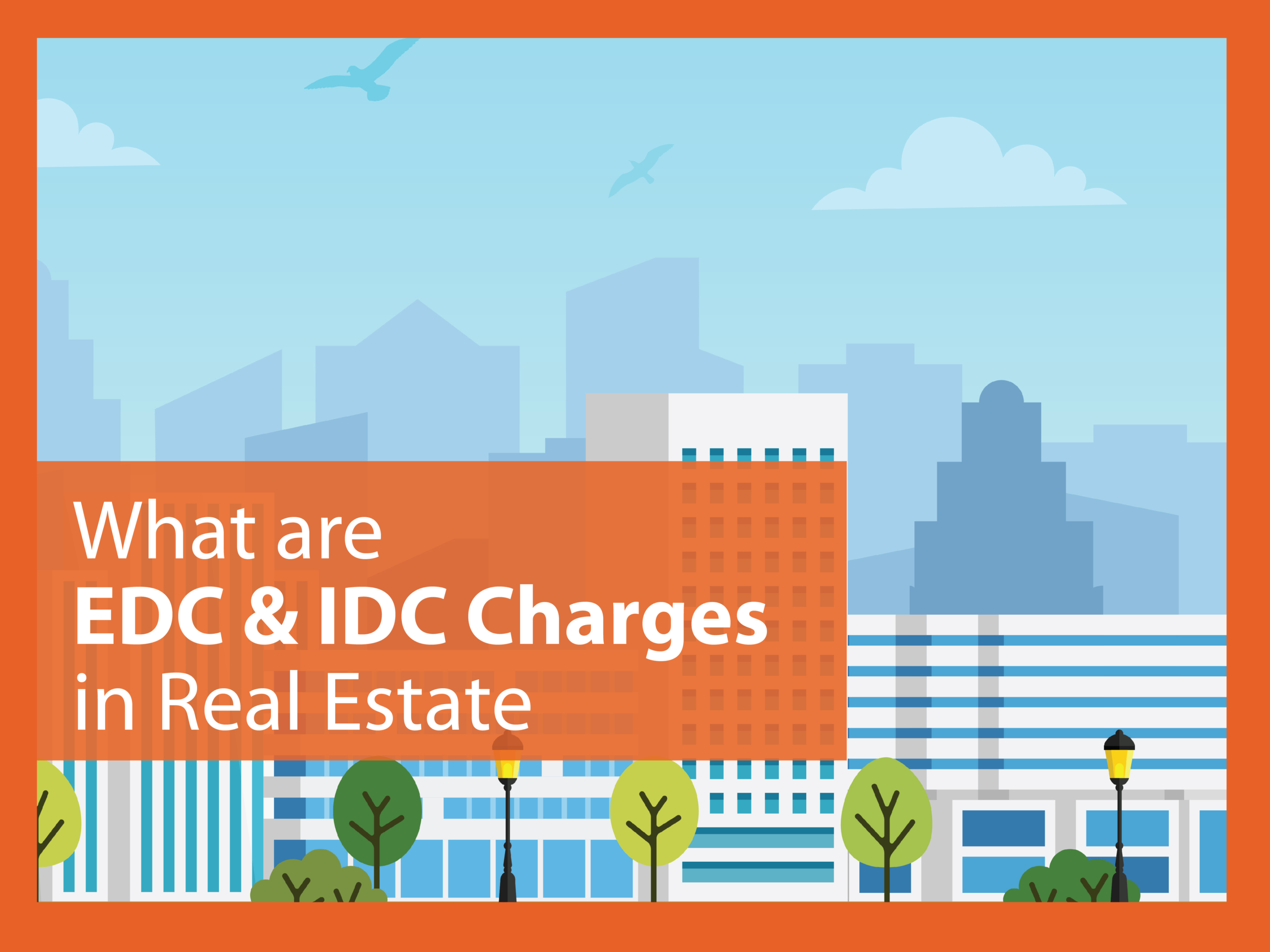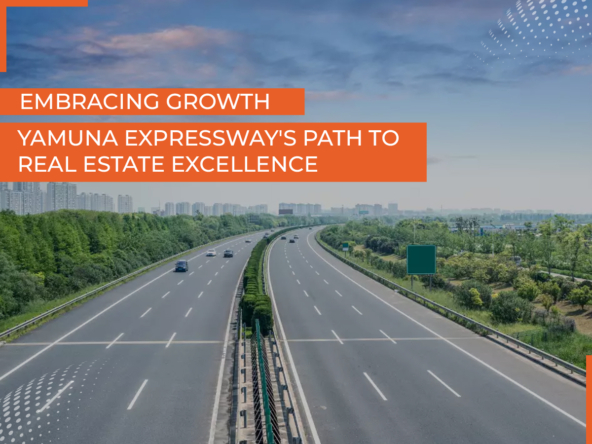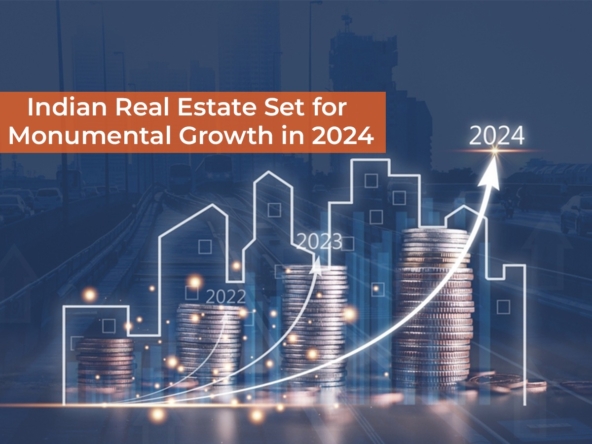Real estate development involves a multitude of costs, including those for infrastructure development, such as roads, water supply systems, sewer systems, and parks. Developers often look to recoup these costs through various means, including the implementation of EDC and IDC fees. In this article, we will discuss everything you need to know about EDC and IDC in real estate, including what they are, how they differ, and how to calculate EDC.
What is EDC?
External Development Charge, commonly known as EDC, is a fee levied by a local government or a development authority on a real estate developer for the development of external infrastructure facilities outside the boundaries of a project. The purpose of EDC is to recover the costs of providing external infrastructure facilities such as roads, water supply, sewerage, and other public amenities necessary to support a project.
EDC fees are a form of cost recovery mechanism used by local governments to fund the construction of necessary external infrastructure facilities in a region. When a developer constructs a project, it creates a demand for external infrastructure such as roads, drainage, and water supply, which in turn increases the load on existing public infrastructure. To accommodate this increased demand, local governments need to develop new infrastructure facilities, which are costly and require significant investment.
EDC is one of the ways through which local governments fund these infrastructure projects. The fees collected from developers are used to finance the development of external infrastructure facilities, which in turn improve the quality of life of the residents in the area.
What is IDC?
IDC stands for Internal Development Charge, which is a fee levied by a local government on a developer for the development of infrastructure within the boundaries of a project. The purpose of IDC is to recover the costs of providing internal infrastructure facilities such as internal roads, electricity, water supply, and sewerage facilities. IDC charges are typically based on the per-unit area of the project, and like EDC, vary by location.
How to Calculate the EDC?
The calculation of EDC fees is typically based on the cost of developing the external infrastructure facilities necessary to support the project. The local government determines the EDC charges, which are published in a list of charges for different types of development. The charges are calculated based on the type of development, the location of the project, and the size of the project.
For example, if a developer is building a residential project in a specific location, the EDC charges would be based on the cost of developing the external infrastructure necessary to support the project, such as the cost of building roads, water supply, and sewerage systems. The developer would be required to pay the EDC fee before receiving the necessary permits to begin construction.
EDC fees are usually charged on a per-acre basis and are considered an additional cost to the developer. The fees can vary significantly from one location to another and are influenced by factors such as the type of development, the location of the project, and the local government policies.
In conclusion, EDC and IDC fees play a crucial role in the development of real estate projects. They are designed to help local governments recoup the costs of infrastructure development and are based on the location and size of the project. Understanding how EDC and IDC fees are calculated can help developers plan and budget their projects more effectively, ensuring that they comply with local regulations and avoid costly delays.
For more information, do make to connect with our team here at My Realestate Services. We can help you get the best value for your money. So, what are you waiting for? Connect with our team today!

How Does EDC differ from IDC?
While both EDC and IDC are fees charged to real estate developers, they differ in terms of what they fund and where the infrastructure is located. EDC fees are charged for external infrastructure development, while IDC fees are charged for internal infrastructure development.
EDC charges are levied on developers for the construction of external infrastructure facilities such as roads, drainage, and water supply, which are located outside the boundaries of a project. These infrastructure facilities are necessary to support the project and are used by the public. EDC fees are calculated based on the cost of developing external infrastructure facilities necessary to support the project and are typically charged on a per-acre basis.
IDC charges, on the other hand, are levied on developers for the construction of internal infrastructure facilities such as internal roads, electricity, water supply, and sewerage facilities within the boundaries of a project. These infrastructure facilities are necessary to support the project and are used by the residents of the project. IDC fees are calculated based on the per-unit area of the project and are typically charged on a per-unit basis.
The purpose of EDC is to recover the costs of providing external infrastructure facilities outside the boundaries of a project, which are necessary to support the project and are used by the public. EDC charges are used to finance the development of external infrastructure facilities, which improve the quality of life of the residents in the area.
The purpose of IDC is to recover the costs of providing internal infrastructure facilities within the boundaries of a project, which are necessary to support the project and are used by the residents of the project. IDC charges are used to finance the development of internal infrastructure facilities, which improve the quality of life of the residents of the project.
In terms of calculation, EDC fees are typically based on the cost of developing external infrastructure facilities necessary to support the project, while IDC fees are typically based on the per-unit area of the project. EDC charges are usually considered an additional cost to the developer, while IDC charges are typically included in the cost of the project.
How Much EDC Does the Developer Charge from their Buyers?
This fee is paid by the developer to the government and is usually considered an additional cost to the developer. Typically, developers do not charge the EDC fee directly from their buyers. However, the EDC fee is factored into the overall cost of the project, which includes the cost of land, construction, and other charges. The developers then recover these costs from the buyers by including them in the sale price of the property.
The amount of EDC charged by the developer from the buyers may vary depending on the location and type of development. In some cases, the developer may also charge a higher amount to recover their costs and make a profit.
Buyers need to be aware of the EDC charges and other charges included in the sale price of the property before making a purchase decision. Buyers should carefully review the terms and conditions of the sale agreement and consult with a legal or financial expert if needed to ensure that they are aware of all costs associated with the purchase.
What is the EDC in Noida, Delhi, and Gurgaon?
The EDC in Noida is much cheap as compared to its counterparts Delhi and Gurgaon. The main reason behind this is the fact that all the projects in Noida are regulated by the Noida Authority. Noida Authority charges a lower EDC fee compared to other neighboring cities in the National Capital Region (NCR).
For example, as of 2022, the EDC charges in Noida for residential plots are Rs. 3,219 per square meter, and for group housing and commercial projects, it is Rs. 5,729 per square meter. In comparison, the EDC charges in Delhi and Gurgaon are significantly higher. In Delhi, the EDC charges can range from Rs. 3,500 to Rs. 11,000 per square meter, depending on the location and type of development. In Gurgaon, the EDC charges can range from Rs. 5,000 to Rs. 11,000 per square meter.
The lower EDC charges in Noida make it a more affordable destination for real estate developers, and it has contributed to the growth of the real estate sector in the city. The Noida Authority has also introduced several initiatives to promote real estate development in the city, such as the launch of the Noida International Airport and the Noida Film City project.
Disclaimer: However, it is important to note that the EDC charges in Noida are subject to change and can vary depending on the location and type of development. Developers should check the latest rates with the Noida Authority before starting their projects to ensure that they are aware of the applicable charges.













